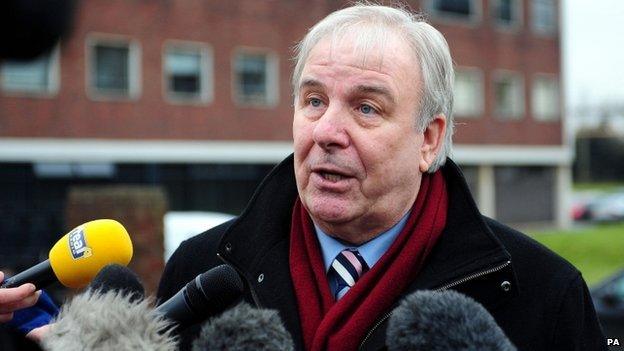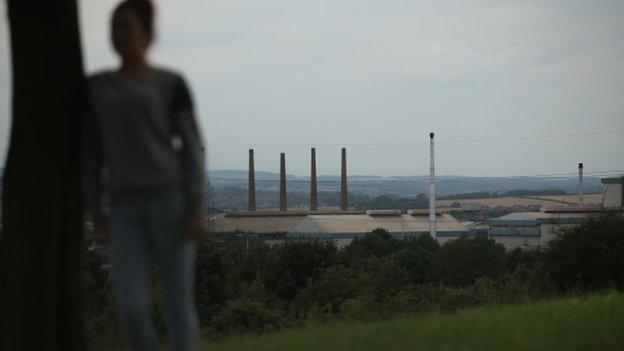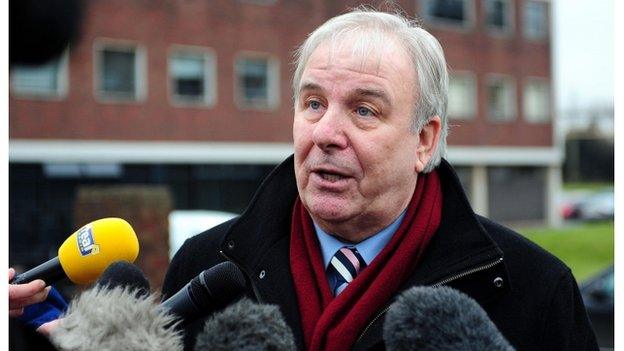Ex-Rotherham Council leader Roger Stone rejects 'bully' tag
- Published

Roger Stone told the Communities and Local Government Committee he had "never been a bully"
The former leader of Rotherham Council, who stepped down in the wake of a report into child sex abuse, has denied he was a "bully".
Appearing before a committee of MPs, Roger Stone also denied fostering a "macho culture" at the authority.
The ex-councillor also refuted a senior official's claim staff were "terrified" of him.
Mr Stone resigned after Prof Alexis Jay's report, external into child sex abuse in the town was published last year.
It estimated 1,400 children had been abused between 1997 and 2013.
Last month, a report, external commissioned from Louise Casey by Communities Secretary Eric Pickles labelled him "a bully".
The senior official quoted in the report said Mr Stone had a dictatorial style.
But Mr Stone told the Communities and Local Government Committee he rejected the claim.
"I've never been a bully," he said. "My concern most of the time is working together.
'Parallel universe'
"I've argued with some, rowed with some, fallen out with some and I've accepted that at times I've actually been wrong with some, but I don't accept [I've been a bully].
He added he was "a strong leader" who had tried to get things done.
Mr Stone claimed South Yorkshire Police, senior council officers and the cabinet member responsible for children told him they were dealing with grooming in Rotherham.
"I can't keep my finger on everything," he said. "I became dependent on the professionals.
"I couldn't stop what was happening. All I could do was try to make it better and try to stop it which is what we did and we had to rely on the professionals."
Simon Danczuk, one of the MPs on the committee, said it seemed Mr Stone had been "living in a parallel universe".
"We've had hundreds of pages of evidence from hundreds of different people suggesting that you were part of the problem," he said.
Mr Stone said he had always had "an extremely good relationship" with the people he worked with.
Mr Danczuk asked Mr Stone if he would return his OBE for political services to Rotherham because of his part in failing to deal with child abuse in the town.
Mr Stone said "no" four times and added: "I don't accept a number of the things that you've accused me of. At the end of the day it's not just about the politics of Rotherham."
Local youth project Risky Business was effectively closed down in Rotherham, according to the Casey report, but Mr Stone denied this.
"We didn't close Risky Business down," he said. "It was incorporated into the council.
"In hindsight probably the incorporation of Risky Business into the council concept was misguided. It was quite obviously a mistake."
The Casey report led to the government replacing Rotherham's entire political leadership with commissioners and widespread condemnation of the council.
It criticised a council which it said had a culture of bullying, "misplaced political correctness" and silencing whistleblowers who tried to speak out.
- Published4 February 2015

- Published27 November 2014
